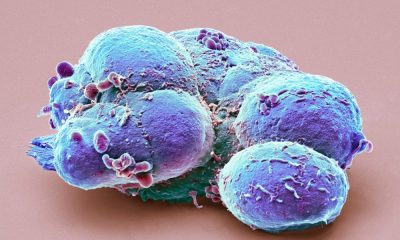The following is a summary of some recent studies on COVID-19. They include research that warrants further study to corroborate the findings and that has yet to be certified by peer review.
Pandemic linked with mental health issues in kids
The COVID-19 pandemic has profoundly impacted the mental health of children and adolescents, researchers say, based on their analysis of findings from 17 earlier studies.
The studies – published in 2020 and 2021 – found unusually high rates of anxiety, depression, sleep disorders, suicidal behavior, stress-related disorders, attention-deficit/hyperactivity disorder, and other mental health problems during the pandemic. Individual behaviors such as hobbies, praying, and listening to music were associated with positive mental health, the studies also found. “Mental health problems were more common in those with low socioeconomic status, lack of social connections and support, adverse family relationships, restricted mobility,” among other factors including school closures and “COVID-related health experiences within family or community,” said Dr. M. Mahbub Hossain of Texas A&M University, who coauthored a report posted on Tuesday on medRxiv ahead of peer review.
“In many places, school and community mental health resources and services became unavailable or inaccessible, making it difficult for children and adolescents to receive timely mental healthcare,” Hossain said, adding there is a need for “multipronged efforts to alleviate the immediate and future health and social consequences” of the pandemic on the mental health of children and teens.
Awareness, use of anti-COVID drugs is low
Fewer than 2% of nonhospitalized high-risk patients with COVID-19 are receiving drugs that can limit the extent of their illness, survey results suggest.
In March 2022, researchers recruited 1,159 people from 37 states who were positive for SARS-CoV-2 on PCR tests and asked whether they knew about or had taken effective treatments for the virus, such as monoclonal antibodies or oral antiviral drugs molnupiravir from Merck & Co or Pfizer’s Paxlovid. Among the 241 individuals older than 65, whose age puts them at risk for severe COVID-19, 66% were aware of treatments and 36.3% had sought them, but only 1.7% reported use of such drugs, according to a report posted on Tuesday on medRxiv ahead of peer review.
Among patients under 65, even fewer were aware of the treatments and had sought them, and rates of use were barely higher than among the older group. “More awareness of effective medicines for COVID-19 among the public and healthcare workers is needed to prevent serious disease and death,” said study leader Dr. Noah Kojima of the University of California, Los Angeles.
Airliner wastewater shows Omicron entering France by plane
Airplane wastewater tests show that requiring proof of COVID vaccination and negative tests before international flights does not necessarily protect countries from the spread of new variants.
Researchers found the Omicron variant in wastewater from two commercial airplanes that flew from Ethiopia to France in December 2021 even though passengers had been required to take COVID tests before boarding and show vaccination cards. “This can be explained by two things,” said study leader Dr Bernard La Scola of Aix-Marseille University in France. First, on long journeys, tests can be negative the day before departure and positive on arrival, “the virus not having yet multiplied enough on the day of the test to be detectable.” Second, people can obtain fake documentation. Some passengers told him it was very easy to buy false-negative tests.
It is not practical to test every passenger coming off a long-haul flight, he acknowledged. One solution might be to test the plane’s wastewater as soon as it lands, with a result obtained before passengers pass through customs and baggage claim, his team suggested in a paper posted on medRxiv ahead of peer review. If the wastewater is positive, passengers can be tested before they exit, however, that approach would only be worthwhile in countries where a new variant is not yet circulating. “As soon as the virus circulates a lot in the country it is useless,” La Scola said.
















